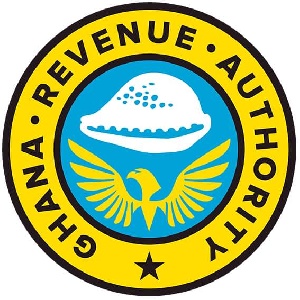- Home - News
- Elections 2024
- News Archive
- Crime & Punishment
- Politics
- Regional
- Editorial
- Health
- Ghanaians Abroad
- Tabloid
- Africa
- Religion
- Photo Archives
- Press Release
General News of Friday, 25 April 2025
Source: www.ghanawebbers.com
Catching the Digital Train: Why Africa Must Not Miss the Crypto Renaissance
By Prof. Raphael Nyarkotey Obu and Dr. David King Boison
The global cryptocurrency market has surged to $3.32 trillion as of January 2025. This is more than a tenfold increase since early 2021. The rapid growth shows that cryptocurrencies have moved from being fringe experiments to mainstream finance (Fortunly, 2025).
Over 560 million people worldwide now own cryptocurrencies. This reflects nearly double the adoption rate since 2021 (Triple-A, 2024). Institutional investors are also getting involved. BlackRock’s iShares Bitcoin Trust (IBIT) set ETF records with $50 billion in assets within just 228 days (Decrypt, 2025).
Decentralized finance (DeFi) has become a significant player in this space. The total value locked in DeFi protocols rose from $5 billion at the end of 2020 to over $150 billion by December 2023 (Phoenix Group, 2025). By late 2024, this figure exceeded $190 billion, indicating growing confidence in permissionless financial services (UPay Blog, 2025).
This innovation has prompted central banks to speed up digital currency initiatives. A mid-2024 survey showed that 94% of surveyed central banks are exploring or developing retail or wholesale CBDCs (BIS, 2024). High-profile multi-CBDC platforms like mBridge are reaching viable product stages.
Despite these advancements globally, Africa's digital asset markets remain underdeveloped. Sub-Saharan Africa accounted for only 2.7% of global on-chain transaction volume—about $125 billion—from July 2023 to June 2024 (Chainalysis, 2024).
Nigeria stands out with significant grassroots adoption and received $59 billion in on-chain value during this period. Kenya ranks at the 21st position globally while Ghana and South Africa follow at the 29th and 31st positions respectively (Chainalysis, 2024). However, regulatory frameworks lag behind; only one-quarter of Sub-Saharan African countries have formal crypto laws (IMF, 2022).
Africa is at a crucial point regarding blockchain technology's potential for financial inclusion and economic integration. Will it harness blockchain effectively? Or will weak regulations hinder local innovation and leave nations dependent on foreign platforms?
The Case for Urgency – Why Africa Must Act Now
Emerging markets worldwide are using cryptocurrency to overcome traditional financial barriers. In Latin America, Brazil ranks ninth while Argentina and Mexico hold the fifteenth and sixteenth spots respectively in Chainalysis’s Global Crypto Adoption Index for 2023 (Chainalysis, 2023).
Southeast Asia also embraces crypto; Vietnam leads globally while other countries like the Philippines and Indonesia follow closely behind (Chainalysis, 2023). Eastern Europe shows similar trends with Ukraine and Russia exhibiting high per-capita transaction volumes.
These regions demonstrate that clear regulations can help emerging economies benefit from the crypto revolution—something African nations should not overlook.
Africa's demographic profile makes it ripe for digital transformation. The median age in Sub-Saharan Africa is just 19.7 years old; by 2030 nearly 60% will be under 25 years old (United Nations DESA, 2024). Young Africans are accustomed to mobile solutions but face high unemployment rates exceeding 30% in many areas (ILO, 2023).
Crypto platforms can provide alternative pathways for entrepreneurship and peer-to-peer finance if regulatory frameworks improve.
Delaying engagement with the crypto economy poses risks for Africa. Without clear laws, investor uncertainty may drive capital away from local startups toward offshore platforms—Latin America attracted $2.7 billion in venture funding compared to just $1.12 billion raised by African startups overall in 2024 (Inter-American Development Bank, 2024; Disrupt Africa, 2025).
Informal markets thrive without regulation but expose users to fraud risks and market manipulation.
If governments do not act quickly to define digital asset activities clearly, they risk excluding themselves from decentralized finance growth engines.
Missed Opportunities Without Regulation
Most African nations lack dedicated crypto legislation despite its promise. An IMF survey found that only about one-quarter of Sub-Saharan countries regulate cryptocurrencies formally while two-thirds have restrictions or outright bans on them (Fuje et al., 2022).
Countries like Ghana and Kenya remain uncertain legally without necessary guardrails for secure investment.
When policymakers fail to act decisively against uncertainty proliferates deterring both local investors as well as international venture capitalists from entering African markets.
In contrast with Latin America attracting substantial VC funding ($2.7 billion), African ventures raised only $1.12 billion last year—a gap likely widening without clear regulations.
The absence of oversight raises concerns about illicit finance as unlicensed platforms operate beyond anti-money laundering controls eroding trust among users exposed fraud risks too often overlooked due lack reliable data adoption metrics obscuring opportunities available within Africa’s digital economy landscape.
Foreign platforms fill voids left by absent regulations leading towards “digital colonialism.” Binance dominates with a staggering share among African exchange users according its regional survey findings showing concentration redirects trading volumes offshore sidelining homegrown alternatives capable generating employment locally fostering technological know-how instead risking control over ecosystems shifting towards foreign incumbents undermining innovation potential promised through crypto technologies altogether!
The Economic Promise of Crypto for Africa
DeFi offers new credit markets bypassing traditional bank lending constraints entirely! Total value locked surged dramatically reaching over$150billionbyDecemberof2018drivenonchainlendingprotocolsandautomatedmarketmakers(PhoenixGroup)InSubSaharanAfricaSMEsfacefinancegapsestimatedat$331billionnearly38percentcreditconstrainedformalSMEs(InternationalFinanceCorporation)
Tokenizing warehouse receipts enhances transparency reduces counterparty risk enabling farmers tap into liquidity pools lower costs improving cash flow cycles mobilizing working capital smallholders long excluded formal trade-finance markets
Remittances totaled approximately$54billionprovidingvital lifeline households burdenedhightransferfees slowsettlement(WorldBank)Stablecoin corridors reduce transaction costs under2percentenablingnearinstanttransfersacross borders when paired licensed service providers operatingunderclearAML/CFTframeworks
Integrating tokenized letters credit blockchain-enabled documentationwithinAfCFTA’sDigitalTradeProtocolcan slashtransactiontimesfromweeksto hours reducing needfor documentary credit lowering fraud risks
Global supply chains accountup30percenttotalcarbonemissionshighlightingurgentneedtransparentdecarbonizationpathwaysTokenizedcarboncreditsprovide real-time traceability reduce project financing risk attracting public private capital reforestation renewable energy sustainable agriculture projects
Spotlight on Youth and Innovation
Africa’s youth represent its greatest asset within crypto revolution boasting median age19yearsold ever-growing cohort digital natives navigating mobile-first ecosystems ease yet youth unemployment remains staggeringly high exceeding30%manynations(InternationalLabourOrganization)
Cryptocurrency presents novel routes enterprise employment bypassing traditional barriers offering peer-to-peer finance decentralized marketplaces token-based business models accessible pathways eager innovate generation
Homegrown success stories underscore dynamic ecosystem Yellow Card founded Nigeria expanded20countries employing270people facilitatingover$3billiontransactionvolume(Pan&Moon)
Chipper Cash exemplifies youth-driven fintech growth co-foundedtwoAfricanexpatriatesgrewfromroughly2millionregisteredusersin20toover5millionbyendof21poweringfreepeer-to-peer payments across sevenmarkets(Afridigest)
SouthAfrica’sVALR highlights institutionalinnovationledyouthfulentrepreneurialclassserving600000retailcustomersofferingspotmarginfuturesstakingproductspreparingexpandglobally(Retrievers)
Even nascent players like Fonbnk illustrate power lean ventures bridging prepaid mobile airtime economies stablecoins enabling unbanked participate digital-asset economy showcasing agile startups deliver inclusive solutions minimal scale
These cases reveal vibrant fintech ecosystem thrives where regulation infrastructure support innovation nurturing scaling entrepreneurial successes key ensuring continent future homegrown inclusive resilient!
Building an African Crypto Vision
To unlock full potential policymakers should adopt harmonized licensing frameworks modeled AfCFTA Digital Trade Protocol promoting common standards interoperability facilitate cross-border trade(AfCFTASecretariat)
Building upon success Pan-African Payment Settlement System(PAPSS) develop dedicated blockchain-based “crypto rail” allowing regulated stablecoins tokenized securities clear continent-wide minutes leveraging ISO20022interoperability standards open-source smart contract libraries ensuring transactions benefit security efficiency decentralized validation
Sustainable growth hinges pipeline skilled professionals universities integrating blockchain curricula University Johannesburg launched certification Covenant University embeds modules collaborating industry hackathons give students exposure(AfricaBlockchainInstitute)
Realizing vision requires coordination AU down national regulators implementing councils bringing together stakeholders co-create regulation oversee sandboxes monitor integrity ensuring future co-designed all stakeholders aligned goals Agenda2063 digitally empowered united prosperous Africa!
Overcoming Barriers
Managing risks scams volatility consumer protection must be prioritized governments mandate disclosure requirements standardized warnings dashboards historical performance data every platform educating consumers recognizing phishing tactics fraudulent schemes restoring trust stifling innovation
Strengthening cybersecurity KYC/AML identity frameworks essential effective regulation access reliable electricity connectivity devices unevenly distributed across continent partnerships leverage ID systems enforce diligence monitoring sharing information detecting suspicious patterns automating alerts agencies
Bridging gaps requires reliable power connectivity device access solar-hybrid mini-grids demonstrated feasibility off-grid solutions equipping communities stable energy charging hubs operation satellite internet services close gaps targeted subsidies entry-level smartphones ensure broader ownership integrating planning roadmaps generate infrastructure depend upon!
Adaptive regulation via sandboxes forums balance innovation safety defining criteria safeguards transparent exit pathways licensing complementing experiments councils convene regulators industry leaders academia civil society refine policies respond emerging risks co-create standards reporting help stay ahead evolving innovations adapt real-time without hampering growth!
Recommendations Roadmap
Governments central banks must swiftly establish interim frameworks regulating activities issuing provisional guidelines defining tokens mandating customer due diligence monitoring suspicious activity aligned FATF recommendations collaborating authorities integrate verification regimes ensuring robust procedures enabled foundational systems operational countries
Establish multi-stakeholder councils representation regulators telecom analytics firms advocates institutionalize dialogue refining regulations overseeing controlled environments necessary fostering collaboration between sectors driving progress forward collectively addressing challenges faced today!











